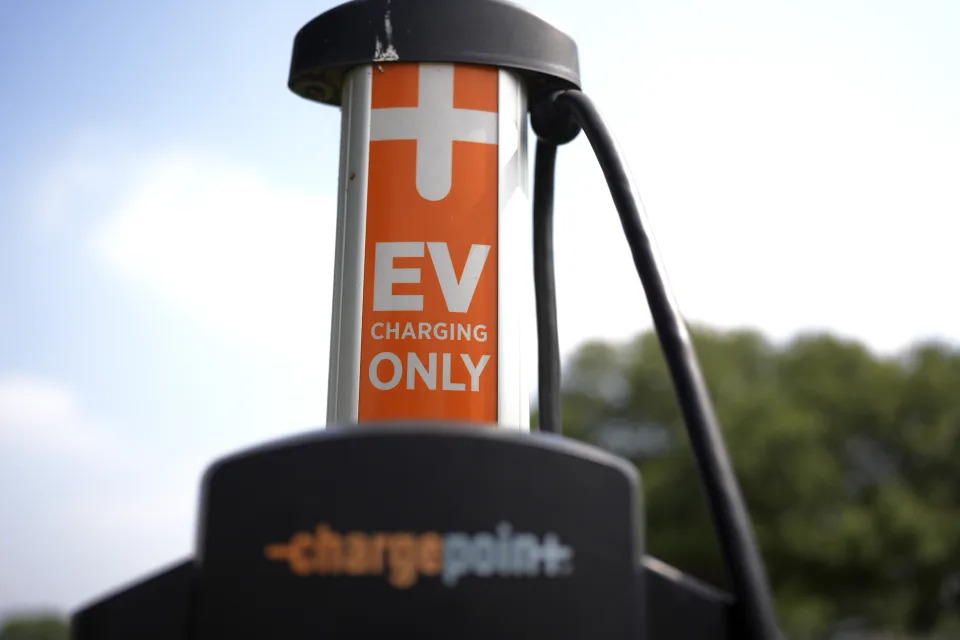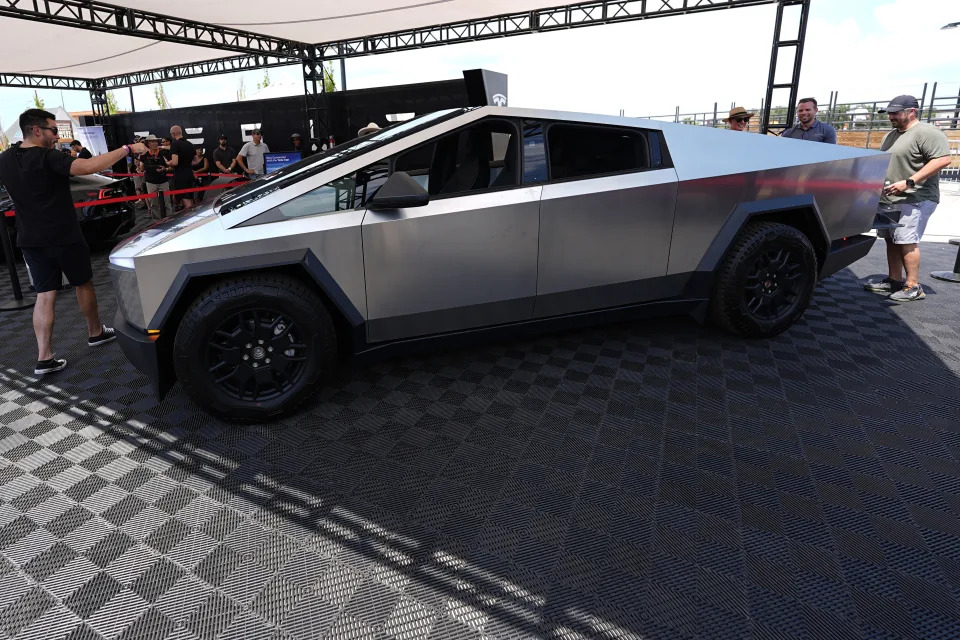News
EV costs on track to match gas guzzlers as early as next year as battery prices drop 'dramatically'
The higher cost of owning an electric versus a gas-powered vehicle is a sticking point for many would-be buyers of EVs. Now, the price of a key EV component is falling, raising hopes that automakers could close the gap as they grapple with waning demand.
Batteries make up about one-third to one-fourth of the cost of producing an electric vehicle, according to Goldman Sachs analysts. The firm predicts the global average cost to automakers for batteries in 2024 will average about $115 per kilowatt hours, about 23% lower than last year. Prices are expected fall another 20% in 2025.
Tesla CEO Elon Musk ( TSLA ) recently noted costs have come down for lithium-ion cells used in EV batteries, a big reversal from the "massive spike" during the pandemic when car manufacturers put in "giant, giant orders."
Musk said at the company's shareholder meeting in June that "battery cell suppliers have increased their supply, and the orders from other car manufacturers have declined."
The drop in demand has impacted the price of lithium. The essential mineral used to make current EV batteries has plunged more than 70% over the past year.
"Raw material prices are a significant factor in the overall cost of EV batteries. As battery prices decrease due to technological advancements, the contribution of raw material costs becomes more significant," Kieran O'Regan, co-founder of battery data and software company About:Energy, told Yahoo Finance.
To be sure, batteries are just one factor in how much EVs cost, which includes everything from research and development to assembly and manufacturing. But it's one of the most important components as the industry races to catch up with China, where the cost to own an electric vehicle is already cheaper than a gas-powered car.

Alan Taub, director of Michigan Materials Research Institute at the University of Michigan, says the battery industry has already come a long way toward bringing down the price of EVs.
"The cost is dropping dramatically through technology," said Taub. "Right now, there's nothing that looks like the Achilles heel of 'you can't get there.'"
This year automakers in the US have scaled back their electric vehicle rollout plans amid waning demand. Price is one reason for the tepid enthusiasm, along with range anxiety and consumer preference for hybrids.
Car companies have tried to make EVs cheaper for consumers through financing deals and cash incentives, according to a report in the Wall Street Journal.
Still, prices in the US haven't come down enough to make it cheaper to buy an EV than a gas-powered vehicle.
The average cost of an electric vehicle sat at $56,371 in June, compared to gas-powered vehicles at $48,644, according to Kelly Blue Book.

Part of the reason for the price disparity is US drivers' tendency toward bigger cars that require larger, more expensive batteries. There's also a delay between battery costs come down and when they're incorporated new vehicles.
"There is a time lag that we need to account for here and that's why 2024 is still a tough year from an EV demand perspective, but we do see catalysts opening up in 2025 from a demand perspective," Nikhil Bhandari, co-head of Asia-Pacific natural resources and clean energy at Goldman Sachs, told Yahoo Finance.
Goldman Sachs analysts estimate a breakeven point between EVs and internal combustion engine (ICE) cars, without accounting for government subsidies, will be achieved in the US between 2025 and 2026 as battery prices fall further next year. The cost of ownership not only includes the price of the actual vehicle but also fuel or battery charging, repairs, and maintenance over the lifetime of a car.
Goldman's timeline appears to coincide with comments made by Elon Musk during the company's latest earnings call when he said "we are on track to deliver a more affordable model in the first half of next year."
Interest rate cuts by the Federal Reserve along with government electrification incentives will also likely play a role in spurring demand.
Once prices go well below breakeven, “then [the electric vehicle] actually becomes a cash machine,” said Tom Narayan, RBC Capital Markets global autos analyst, highlighting the cost benefit of not having to include catalytic converters, engines, or transmissions, which are found in ICE vehicles.
@ines_ferre .

